Manage
guest feedback
without putting
in overtime
Ditch complex workflows and boring spreadsheets. Embrace efficiency with our all-in-one platform for guest reviews, surveys, and satisfaction metrics.
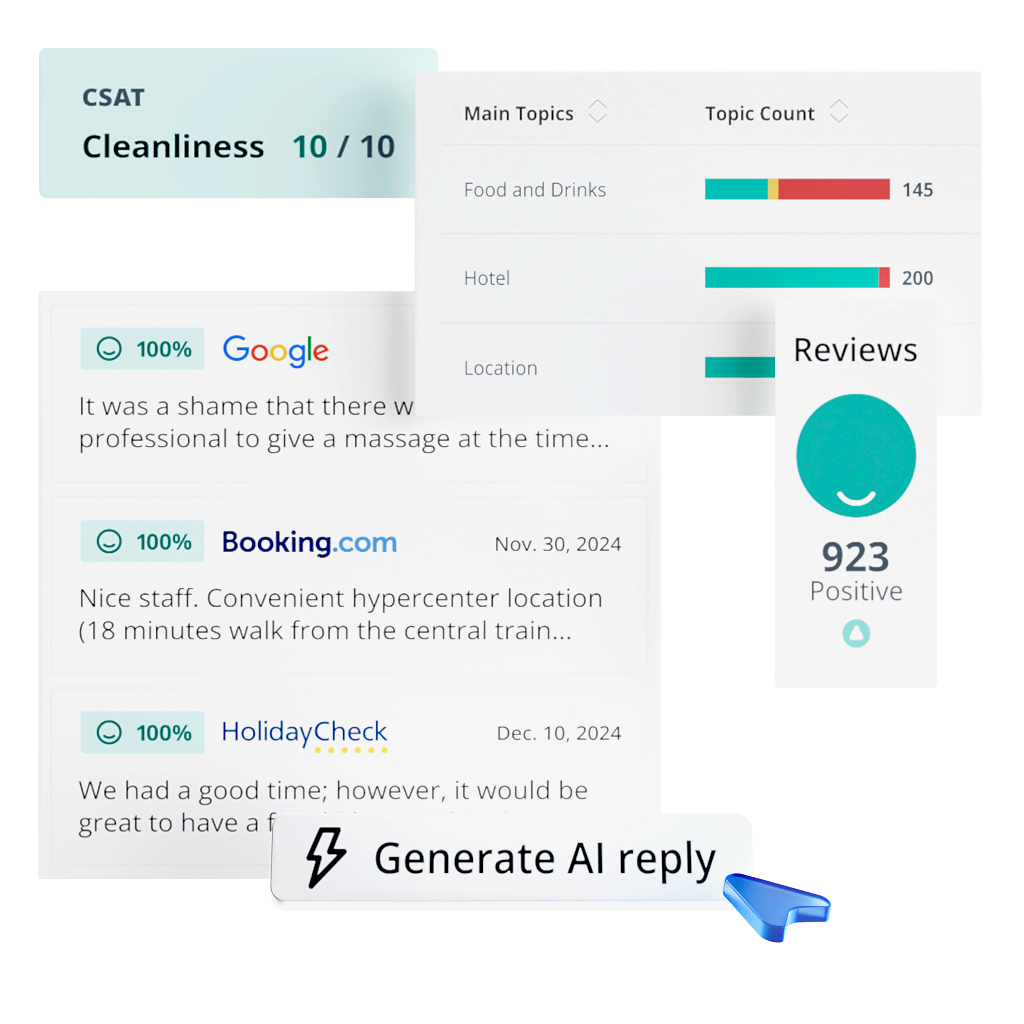
Taking the stress out of guest feedback for 5k+ hotels




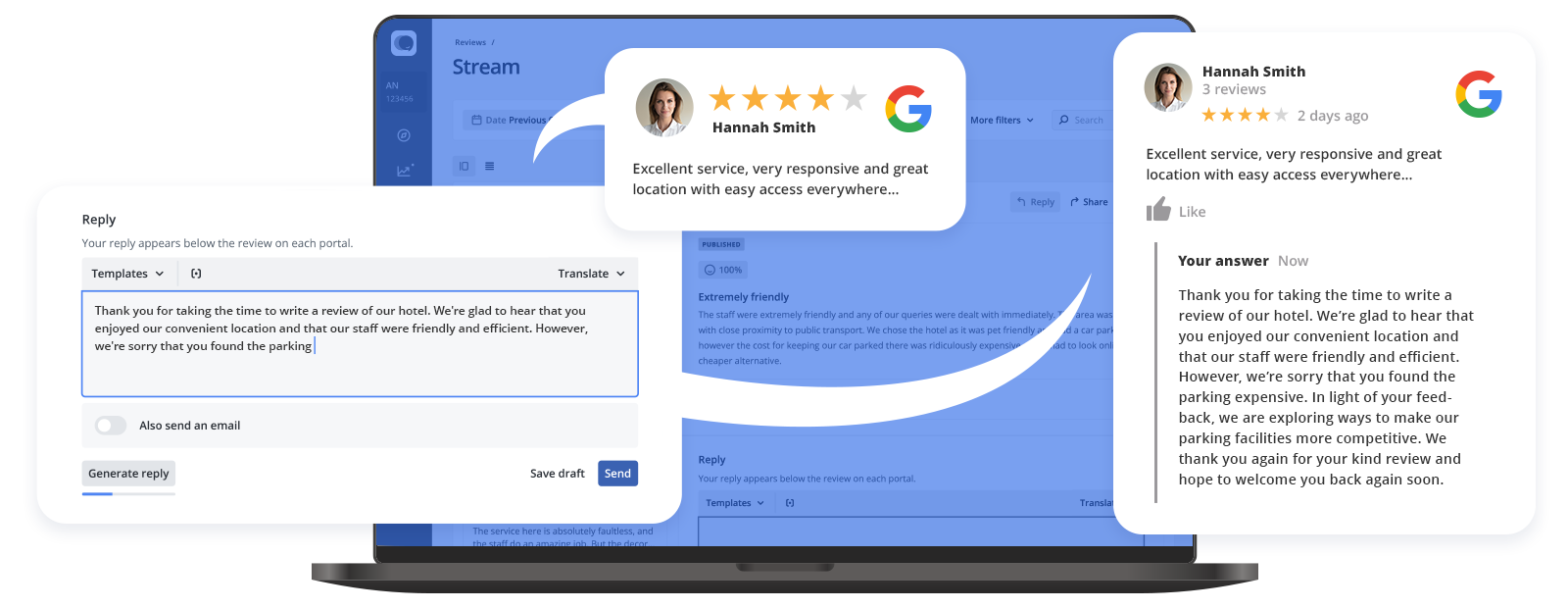
Online reviews
- Put review collection on autopilot with perfectly-timed, personalised email invitations
- Climb Google search rankings and bring new customers straight to your door
- Forget wasted time trawling through review sites. See all your reviews in one dashboard and reply to them directly
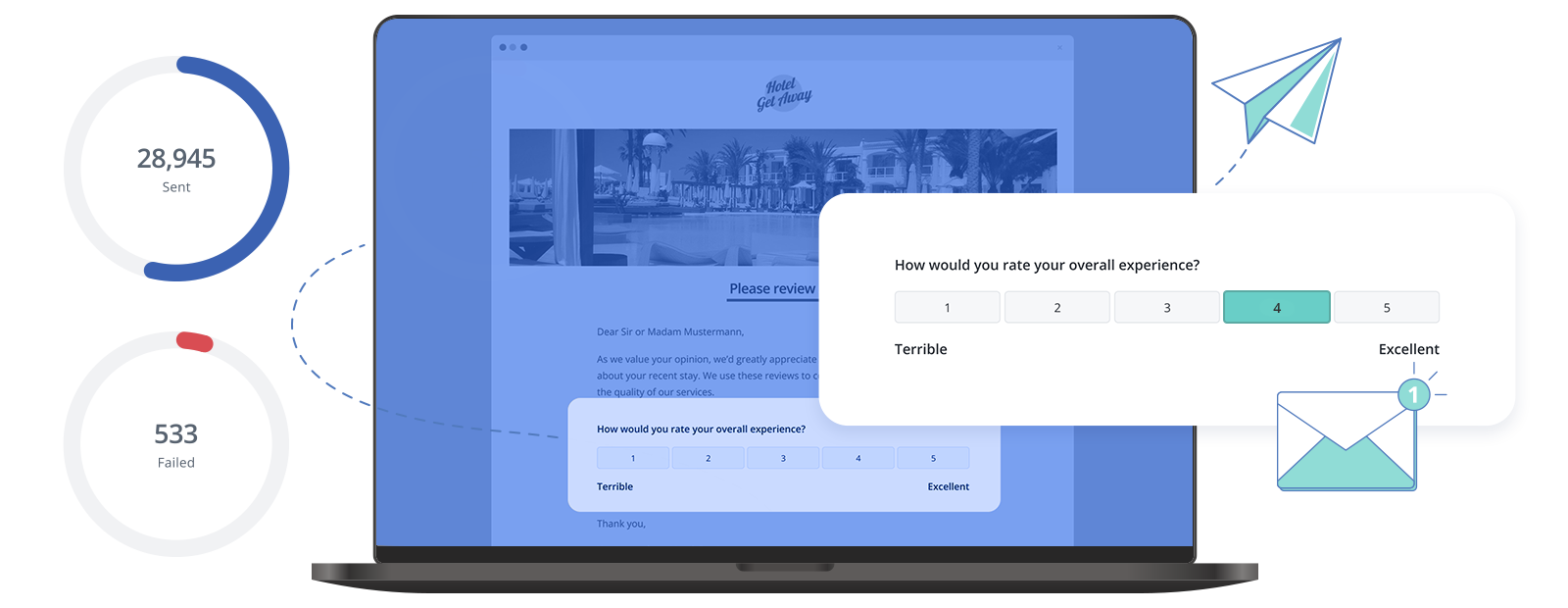
Email Surveys
- Get the feedback you need in less than half the time with response rates of up to 18% (vs the 6% average for email surveys)
- See all your survey data in one place, using smart filters to dive deeper into your results
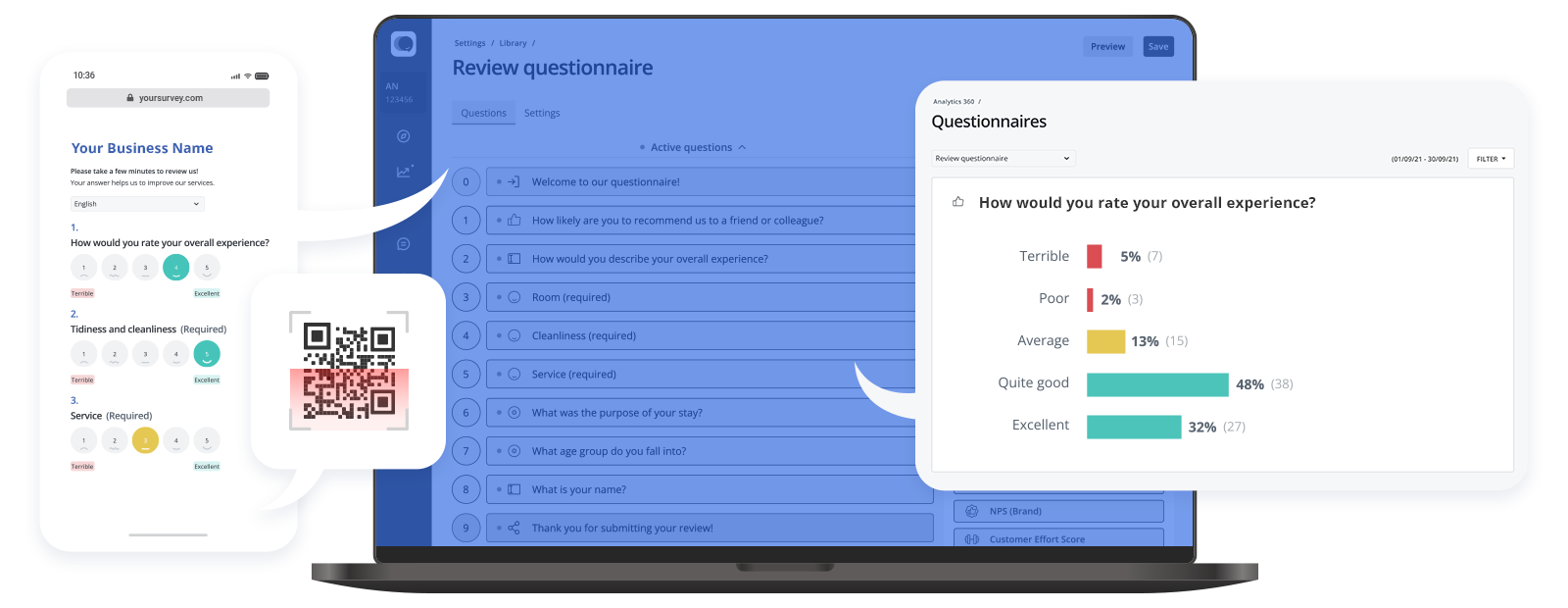
QR code surveys
- From paper receipts to your point of sale, make it convenient for customers to share their thoughts
- Tackle problems in real-time to transform unhappy customers into lifelong fans
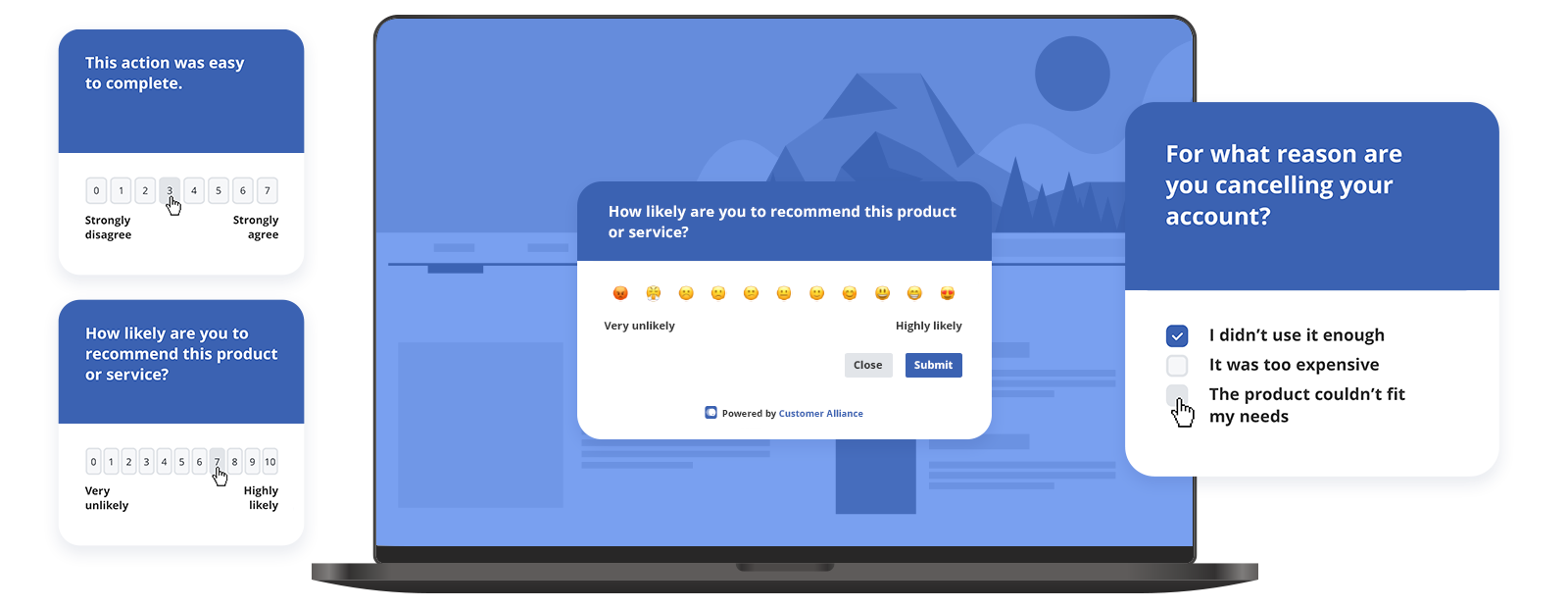
Website surveys
- Plan website changes backed by real customer feedback for fast, impactful results
- Boost click-throughs and bookings without time-consuming trial and error
Integrate easily with the software you already use







Make measuring performance a breeze with built-in satisfaction metrics
See your team’s impact in real time. No calculations required
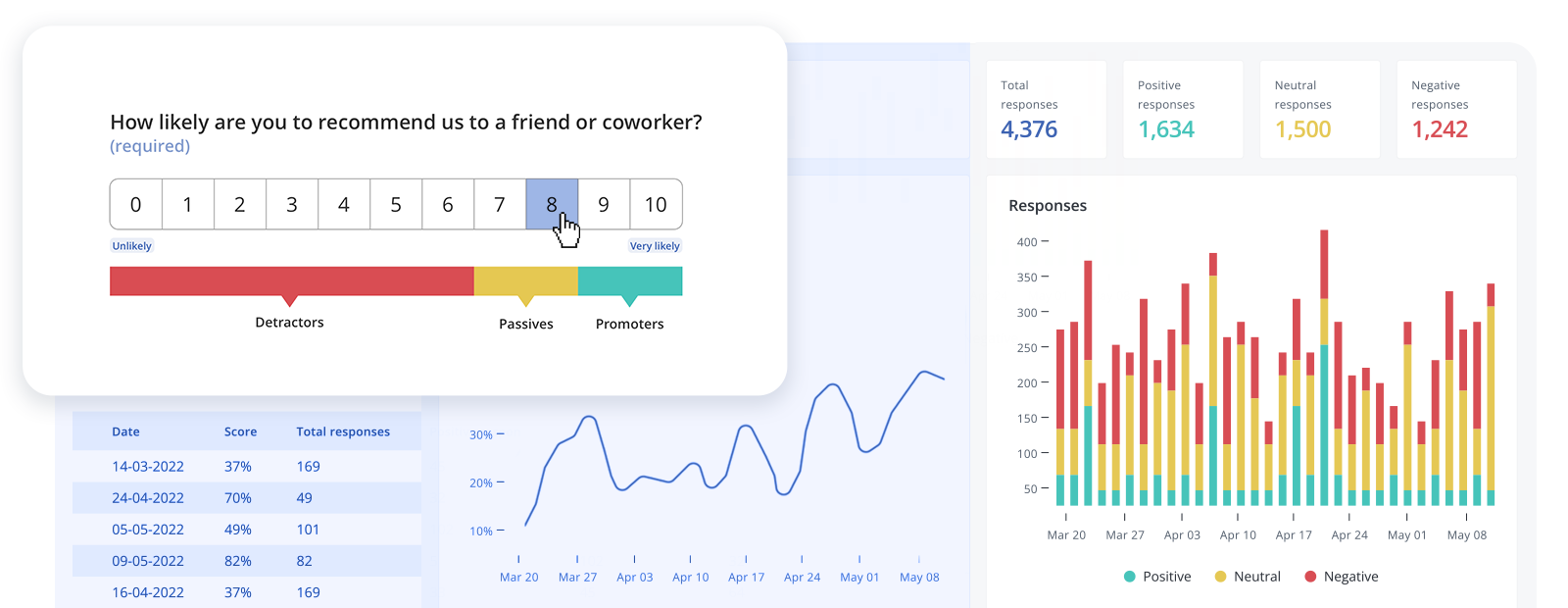
Net Promoter Score (NPS)
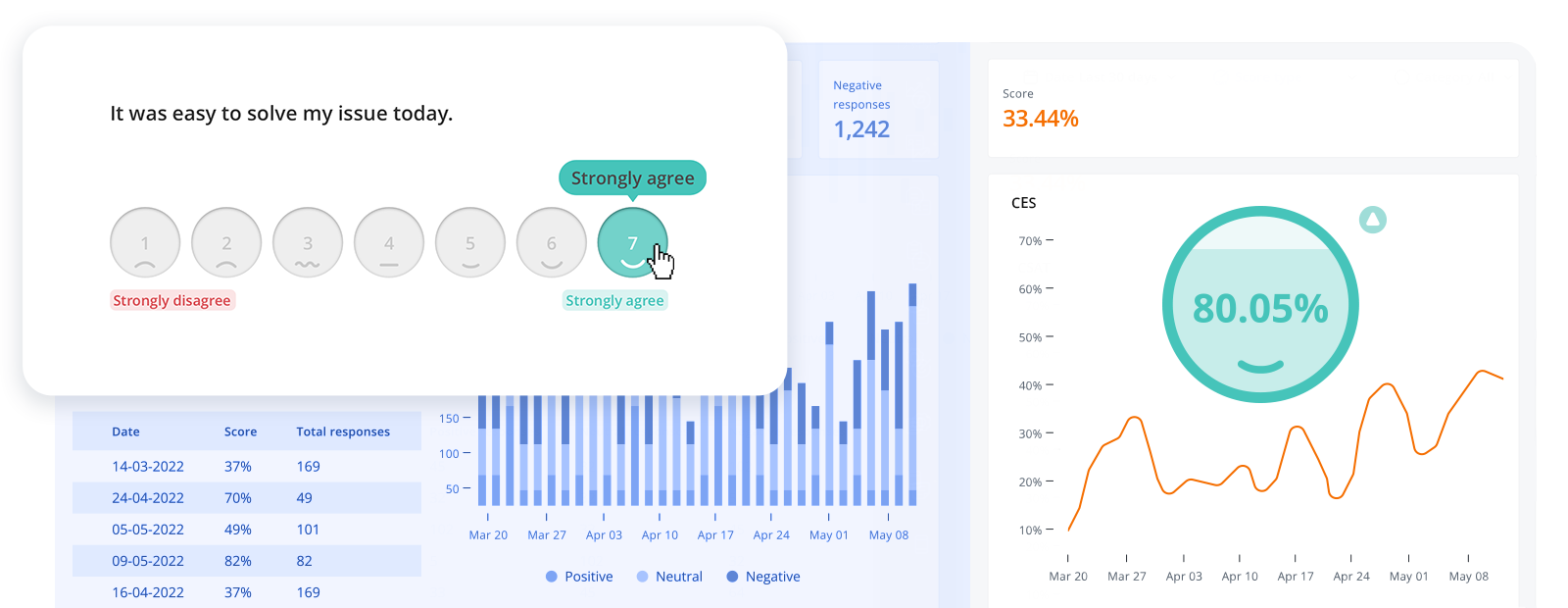
Customer Effort Score (CES)
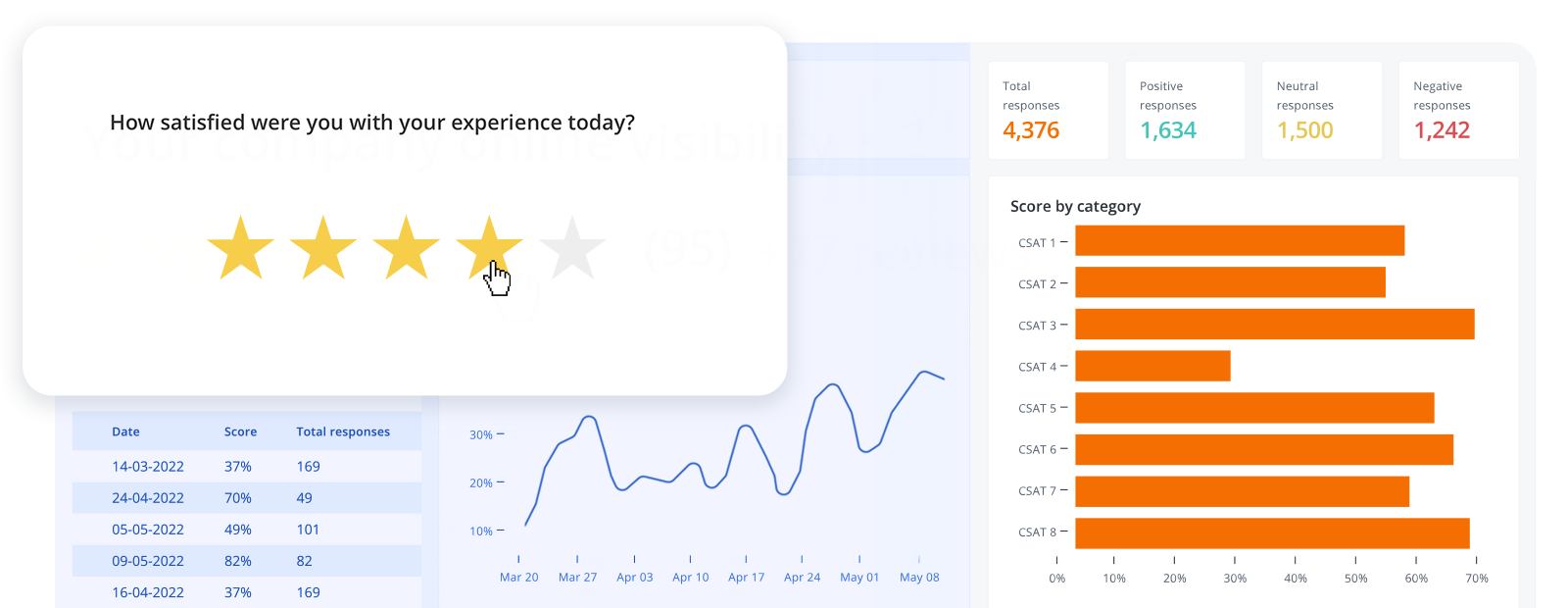
Customer Satisfaction Score (CSAT)
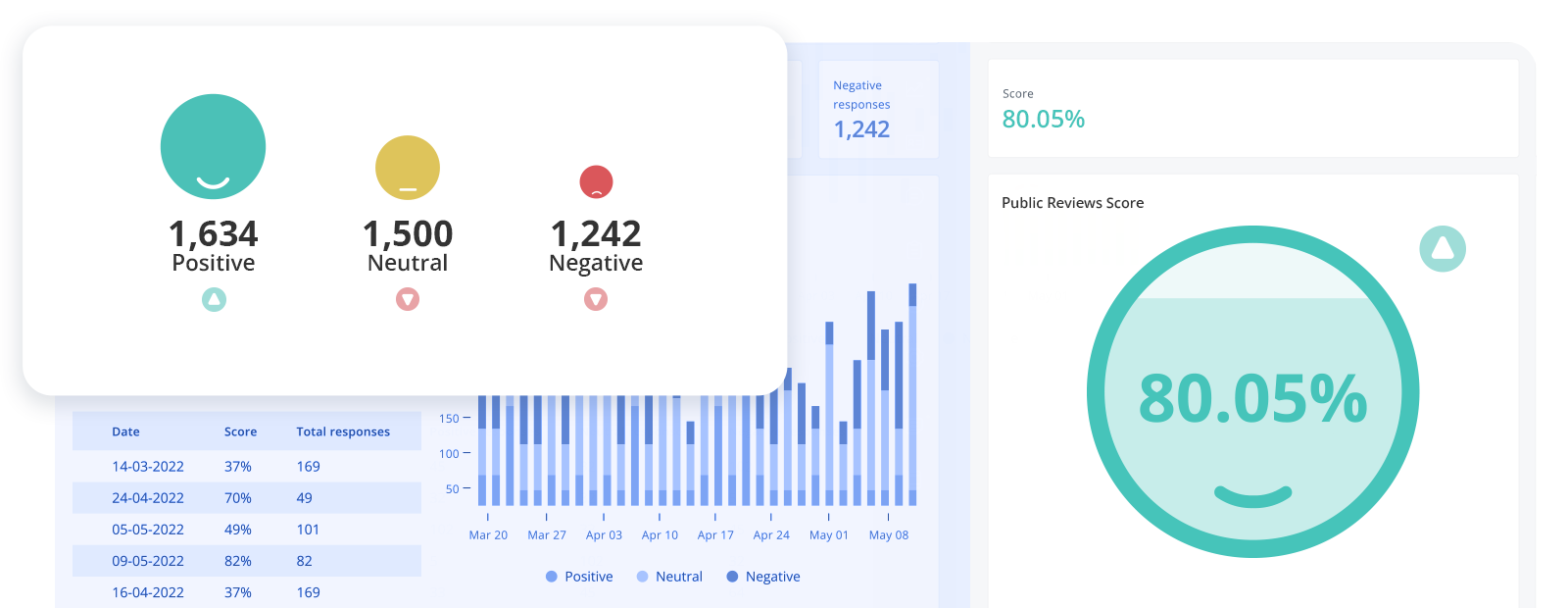
Public Reviews Score (PRS)
See the impact of better ratings on revenue and operational time
Use our calculators to see how higher ratings and quicker responses translate into stronger business results.
Articles

If you’re a business owner or marketing manager, you know that online reviews can make or break your reputation. And […]

Countless hoteliers who turn to review management software struggle with the challenges of: There are several review management software out […]

At Customer Alliance, we’ve helped thousands of hotels collect and analyse guest feedback. One thing is clear: properties that effectively […]

Many businesses turn to online reputation management tools when struggling with these critical challenges: The right online reputation management tool […]
